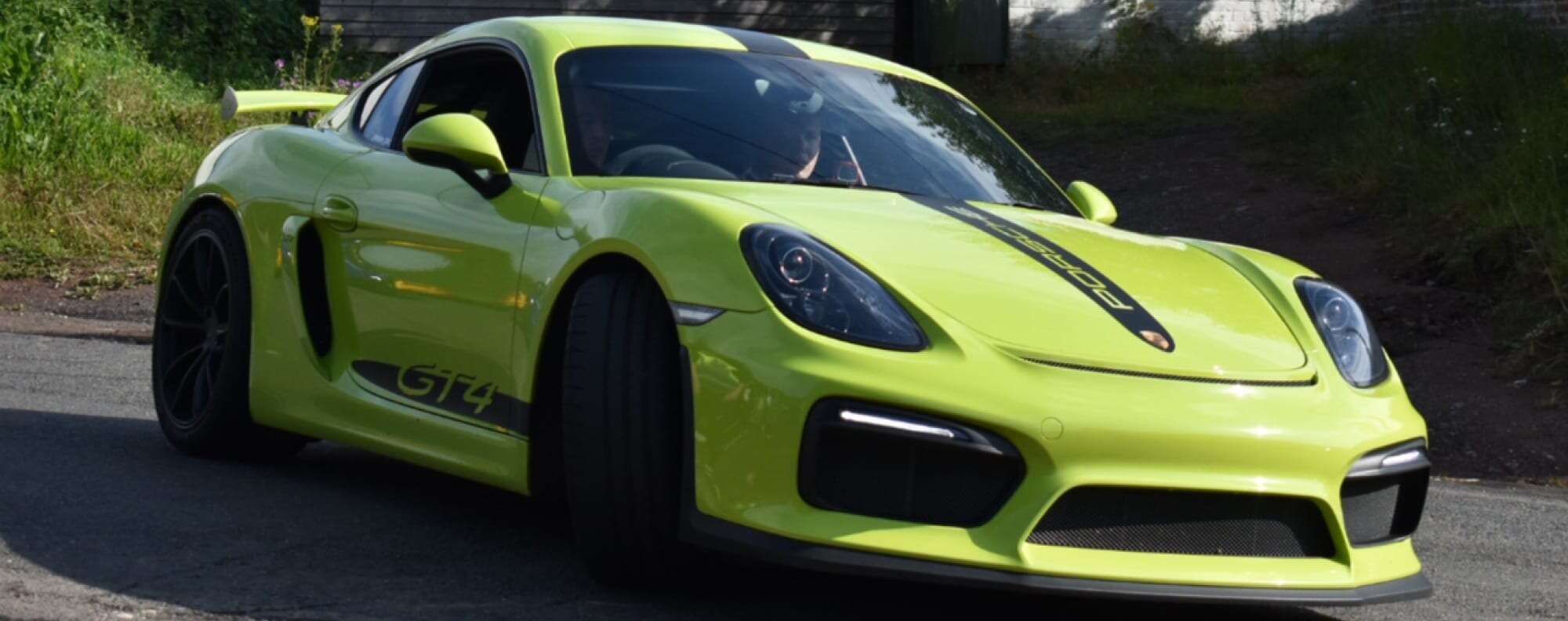Our Enthusiast underwriting team are known across the industry for their in-depth expertise and relentless passion for classic cars – a useful combination as we look to increase our risk appetite for underwriting iconic, standout and one-of-a-kind vehicles, not to forget traditional classics and collections.
We recently sat down with Alan Bradbury, ERS Senior Underwriter for bespoke motors and a self-professed petrol-head, to chat about 2020 market trends. Alan tells us about the latest in classic car investment patterns, the impact of social influencers on buying trends and the vehicles he thinks are most likely to become future classics…
Tell us about the classic car market over the past 12 months. Has anything in particular caught your eye?
The first thing to say is that this a very consistent market – good news for us and for our brokers. Classic cars are as popular as ever and, at its core, the market has for many years been driven by the trend of enthusiasts snapping up the cars they grew up with, or grew up dreaming of.
Of course, many of the top end classics such as Jaguar E-Types and Porsche 911s are still out of financial reach for many, despite recent fluctuations in the market. Hence, we’ve seen buyers’ attention drawn to more affordable ‘modern classics’ spanning the 1980s to early 2000s – from hot hatches to GTIs such as the Peugeot 205 and VW Golf.
How are you defining what constitutes a modern classic from an everyday vehicle?
The definition of a modern classic is often open to interpretation. Most cars over 20 years old could potentially be considered as classics – with some insurers the threshold is just 15 years.
But I’d say there always has to be a degree of collectability or uniqueness for a vehicle to be considered a classic car. Just because it’s pre-2000s doesn’t make it a modern classic – some of these are literally just old cars!
A modern classic has to be collectable, desirable and usually produced in limited numbers. For example, a Vauxhall VX220 Turbo from 2003 would be considered a modern classic, whereas a Vauxhall Corsa 1.2 from the same year definitely would not.
Are modern classics a good investment or are they more of a nostalgic pleasure?
Well, if we take the 1990s as an example, it’s fair to say that Enthusiasts who grew up in the 90s are blessed with a huge range of ‘classics’ from the same era, including many hot hatches and Japanese cars that are now seeing values rise.
The same is true of some of the post-millennial ‘modern classics’. While these are mostly being bought to be driven and enjoyed rather than hidden away in a garage, some limited editions are nevertheless increasing in value too. For example, Mk2 Ford Focus RS market values are already holding strong, while the values of clean Mk1s are rising significantly. Those looking to buy for investment need to be patient though – values move more slowly here than with older classics, unless it’s an incredibly rare model.
Will the modern classics trend continue into the future?
Yes, I’ve no doubt that some of today’s new cars can become classics in the future. The million-dollar question is which ones will be the most sought after models by tomorrow’s collectors?
Enthusiasts today are certainly buying high value vehicles with this question in the back of their mind, even though most new cars are mass-produced and will take an awfully long time to become classics.
It’s also worth noting that as new emissions rulings come into force around the world, many manufacturers have been giving vehicles a ‘last hurrah’ before they change engines. Some of these could become ‘instant’ classics – for example the Mercedes C63 with the phenomenal 6.2 V8 engine.
Are there any others vehicles you see as potentially destined for greatness?
This is far from an exact science, so don’t hold me to this! But if I had to predict a few future classics, I’d probably go for the following:
• Audi S1 Quattro
• Alpine A110
• Focus RS (Mk3)
• BMW M2 Competition
• Porsche Cayman GT4
Also, the (soon to be released) Toyota Yaris GR looks set to become an instant classic.
Looking beyond modern classics, where does ERS see the biggest growth opportunities within the market?
With interest rates at an all time low, classic cars of all types are being viewed more through an investment lens, which is driving a lot of growth. Along similar lines, we’re seeing decent growth in the collections market, while the market for modified vehicles also continues to thrive. Kit cars remain a niche segment and tend to appeal to those with mechanical expertise (and lots of time on their hands!). Thankfully our team understands the whole spectrum of Enthusiast vehicles, and we make a big effort to keep evolving our products in line with market changes.
Has the profile of the Enthusiast audience changed over time?
One thing we do see is older generations that want to put their money to good use by investing in classic cars, before handing them down to younger family members, thus bringing in a new generation of enthusiast. It is also encouraging to see more women getting involved with car clubs and shows, and this is starting to translate into ownership trends around classics and modified cars.
How is the growing popularity of car-focused social influencers impacting the market?
There’s no denying that social media is playing a huge part in the car world. The days of Max Power magazine may be behind us, but influencers and bloggers have taken up the mantle by providing a vast array of reviews and insights to the Enthusiast world. A product review by a top influencer can genuinely cause sales figures to rocket, which is why we’re now seeing manufacturers looking to utilise social media even more. Of course, if an influencer recommends a specific broker or insurer this can also have a big impact, so it’s well worth keeping an eye on what’s happening in this space.
All in all, it sounds like you’re pretty optimistic about the future prospects for the Enthusiast market?
I definitely am. Despite the big push by manufacturers towards electric/hybrid cars, I still feel it will be many years before the combustion engine is consigned to the scrapheap. Classic cars are still a good investment and appetite for modern classics continues unabated, so it’s a great time to be working in the market.
From an insurance perspective, new and improved tech will continue to help clients get the best deal on their insurance. Our own digital platform is more popular than ever, and as the industry moves forward, it’s important for insurers to work closely with brokers and tech companies to ensure a safe and secure digital trading environment.
Finally, which are the car events you’re most looking forward to attending during 2020?
There are so many car shows between March and September, I’d probably be divorced if I went to every one!
Silverstone is always a mecca for Enthusiasts, so for me it would have to be: Ford Fair and Japfest (Silverstone) and hopefully a British Touring car event (at one of the race circuits around the country). If I won the lottery then I’d up the stakes and join the Gumball 3000 rally, which this year involves an eye-wateringly epic journey from Toronto to Havana.






